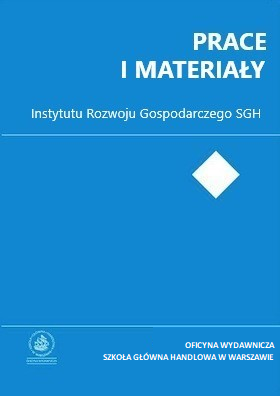Synchronizacja wahań koniunkturalnych w strefie euro a teoria politycznego cyklu koniunkturalnego
Main Article Content
Abstract
Synchronisation of business situation fluctuations is perceived as one of the most important factors vital to achieve full benefits from monetary integration and therefore conditioning the date of Poland's forming the Euro-zone. The lack of synchronisation impedes the pursuit of common monetary policy by member countries of the monetary union. The objective of the paper is an attempted analysis of a possibility to synchronise business situation fluctuations in the Euro-zone basing on the theory of political situation cycle. In accordance with the mentioned theory the sources of fluctuations could be detected in the election mechanism. The some phases of the cycle occur at similar time intervals between the elections. Unification of the election calendar within the European Union could therefore lead to the increased degree of the cycle synchronisation. The paper starts with a review of writings regarding the problem of business situation cycle in the European Union with focus on the fluctuations in the Euro-zone. It result from the review that in the monetary union states the divergence of cyclical fluctuations is larger than in the states outside the union. However, it is not optimal considering the theory of optimal monetary area. Further in the paper the author draws attention to the theory of political situation cycle as one of those explaining the origin of fluctuations. The reader is provided with the F. Breuss model that proves that synchronisation of fluctuations being the aftermath of the unification of the election time within the European Union may trigger GDP growth and a drop in unemployment. However, this could result in a concurrent inflation rise. Concluding, the author states that unification of the election time in the European Union States might be difficult to reach from political point of view. The subject matter of the paper is, however, crucial considering disputes going on nowadays among economist concerning the date of Poland's joining the Euro-zone. Although no optimal date for accepting the common currency is provided in the paper, it indicates directions for further thoughts and research. (original abstract)
